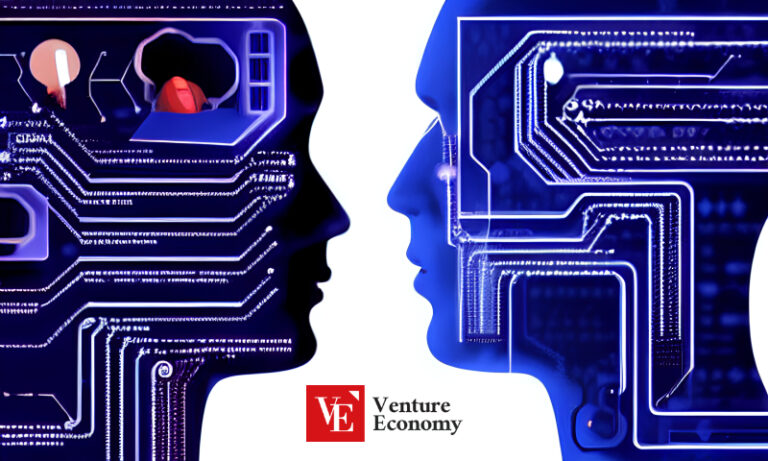40% of content companies “Postponing the introduction of generative AI until relevant laws are specified”
Content companies that pursue stability rather than efficiency Government guidelines continue to point out ‘ambiguity in standards’ “For technological development to be meaningful, the scope of rights recognition must be clear”

While the use of generative artificial intelligence (AI), which began in earnest last year, is expanding throughout the industry, it has been confirmed that many content companies are delaying its introduction due to insufficient related laws. It is pointed out that copyright-related issues, which have been consistently discussed surrounding generative AI, are hindering the spread of the technology.
Loopholes in the law become an obstacle to the introduction of generative AI
According to the Korea Creative Content Agency (KOCCA) on the 8th, of the 1,838 companies that did not introduce generative AI until the first half of last year, 40.8% (1st + 2nd rankings combined) cited ‘lack of related laws’ as an obstacle to introduction. I picked it. Many companies appear to have recognized the risks as greater than the work efficiency that can be expected from the introduction of AI. This was followed by ‘uncertainty of responsibility in the event of an accident (38.5%)’, ‘strict regulations regarding data distribution (38.3%)’, and ‘restrictions on access to quality data (20.9%).’
The reason why copyright issues, including data use, are considered the most sensitive factors is that the field where generative AI is mainly used is content production. According to Hankonjin, 117% (59.8st + 1nd rank) of 2 content companies used generative AI in the production process, including in the work environment (17.1%), creator environment (12.8%), and platform environment (8.5%). The number of companies using it was less than 20%.
The government announced the ‘Generative AI Copyright Guide’ and encouraged the use of generative AI in industrial settings. The guidebook announced by the Ministry of Culture, Sports and Tourism in December of last year contains information on ▲information for AI business operators, ▲information for copyright holders, ▲information for artificial intelligence users, and ▲copyright registration for generative AI products. In addition, regarding copyright registration of generative AI output, it was specified that “copyright cannot be registered for AI output without human creative intervention in a series of expressive actions.” However, an exception was made, saying, “If human creative work such as modification, increase or decrease is added to the AI output and copyright is recognized in that part, copyright registration is possible.” The Ministry of Culture, Sports and Tourism said, “We plan to actively respond to AI, which is a huge global trend, and to advance the AI-copyright response base so that industrial development and creator protection can be harmonized.”
The ever-increasing value of copyright, the need for clear standards↑
However, even with the government’s announcement of guidelines, the majority in the industry is of the opinion that more specific standards are needed. As the profitability of content varies greatly depending on the existence and scope of copyright, it is argued that the frequency and proportion of allowable use of generative AI should be clarified for copyright recognition. In particular, there has been active discussion recently about whether to grant copyright to a specific creator for the output created after generative AI learns the existing work of that creator.
The fact that copyright infringement patterns are becoming increasingly intelligent and organized also adds strength to the argument that the scope of copyright recognition for generative AI products should be clarified. This is because the scale of copyright infringement threatening various content industries such as videos, webtoons, and web novels is estimated to amount to tens of trillions of won. Park Jeong-ryeol, director of the Korea Copyright Protection Agency, emphasized the importance of copyright, saying, “Criminal practices of copyright infringement in content are becoming more sophisticated day by day, discouraging creators’ motivation to create.”
In this way, copyright, which was considered a ‘part’ of content in the past, is gradually increasing its presence and becoming a central axis that determines the value of specific products. For example, in October of last year, a group of people were arrested in Indonesia for illegally transmitting over 10 domestic and foreign broadcasts and movies. The damage resulting from the incident is estimated by the industry to be about 10 billion won, and a trial is currently underway regarding the return of unfair profits and fines.
However, the criteria for recognizing and calculating the value of copyright are still ambiguous. This is why many companies postpone the introduction or development of generative AI indefinitely. An official in the content industry pointed out, “Recently, attempts to use generative AI in the process of creating game illustrations or webtoons are increasing, but if the copyright of works using AI is not recognized, the development of technology will be meaningless,” adding, “Generative AI “Clear standards must be established not only for copyright related to AI learning, but also for copyright on the output,” he emphasized.









 네이버계정으로 로그인하기
네이버계정으로 로그인하기
 카카오톡 계정으로 로그인하기
카카오톡 계정으로 로그인하기
